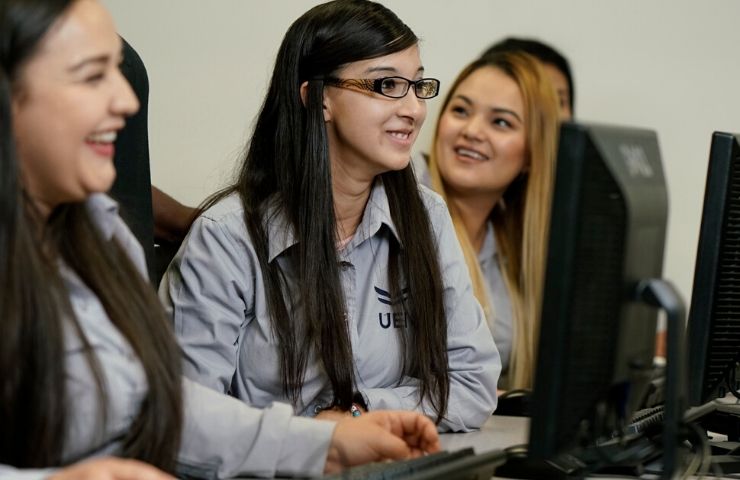
How to Be a Team Player at Work and in the Classroom
If you haven’t noticed already, working with a team is a crucial part of day-to-day life. At work, it’s a rarity to complete a whole project all by yourself – and there’s a good reason for that. Everyone brings different expertise, experience, perspectives, and knowledge to the table, creating a team that can solve a problem better than a single individual. Being a great team player means developing some key skills. While you’re at a career training school work on mastering these skills so you will be prepared for the challenges that await you in your career.
KNOW YOUR STRENGTHS…AND WEAKNESSES
A team is a combination of talents. What do you bring to the team? Some examples of strengths in the workplace include knowledge of the subject matter, leadership, organizational skills, and punctuality. As your team divides up the work, make sure that you are responsible for tasks that fit your skill set. If you’re comfortable speaking in front of groups, you can volunteer to present your project to the class. However, if you are not the best writer in the group, don’t volunteer to type up the final report.
SPEAK YOUR MIND
Did you know that 74 percent of people are afraid of public speaking? Also known as Glossophobia, over five million Americans have some type of social phobia. You might be intimidated by the idea of sharing your thoughts with your team – it’s totally normal! Try to fight back by being confident that you are taking this class or working this job because you’re qualified to be there. Your team needs your brain to be successful, and they’re counting on you to be open, honest, and to speak your mind.
AMPLIFY!
Now that you know a lot of the people in your group are worried about speaking up, you can help them contribute, too. Try using the “amplification” strategy to make sure everyone’s voices are heard: when you hear someone on your team make a good or important point, pipe up and repeat that point, making sure you acknowledge the person who said it first. For example, you can say, “I think Maria just made a great point about creating a PowerPoint for our presentation. Does anyone else agree?” That quick comment makes Maria feel good about speaking up, allows you to share your opinion, and opens the door for other teammates to make a comment. Try it out in your next meeting!
DELIVER
The most important teamwork skill is following through on your commitments. If you agree to research how local companies manage IT requests, you have to do the research. If you agree to write the introduction of a group report, make sure your section is done on time. Make sure your teammates, classmates, and coworkers know that they can rely on you when you are working together.
STAY FLEXIBLE
If you’ve ever worked with a team, you probably know things can change in a second. People may join or leave the group, the project scope can change, and goals can be redefined. The best team players know how to be flexible. Whether it’s helping out someone who may be new to the team or staying late in the office, don’t fight change- see it as a new opportunity for growth. Your willingness to stay positive in the face of change is an important skill- one your boss or teacher will likely notice.
Always remember, teamwork at school or at your job is not a competition. Success depends on making sure everyone on your team has the opportunity to make a meaningful contribution. Your project should be better than what one person could do by themselves.





